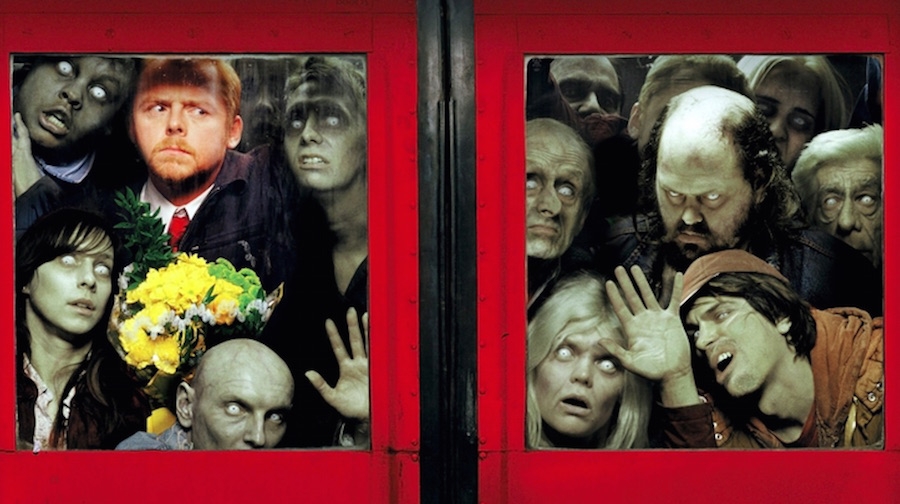What do Barbara from Night of The Living Dead and the recent “Brexit” vote have in common?
Quite a bit, I’d say.
You see, since 2009, I have been teaching a course on zombies: zombies in film, literature, music — even poetry. It’s quite literally my day job; however, like many day jobs, mine comes with a few occupational hazards, one of which is a tendency to see major events, first and foremost, as evidence of zombies and their long, strange parade through popular culture. While this habit can make me a pretty frustrating dinner party guest, it’s surprisingly useful when something as consequential as Brexit occurs.
For example, during the week that the British referendum on whether or not to remain in the European Union was held, my students just happened to be reading Jon Stratton’s excellent article “Zombie Trouble: Zombie Texts, Bare Life, and Displaced People.” In that article from 2011, Stratton makes a persuasive argument that what we’re really talking about when we’re talking about zombies in contemporary culture is a fear of immigrants.
While Stratton focuses mostly on zombies representing non-western, migratory populations, it’s not hard at all to expand his logic to the documented immigration fears that led to the Brexit vote (e.g., a fear that a horde of continental Europeans would swarm into the British job market and consume all the low-skill jobs). It’s easy enough to imagine the likely next British Prime Minister Boris Johnson saying, “They’re coming for you, Barbara! And they want your job as a sanitation engineer!” when he speaks to his minions.
As for Stratton, he even references Simon Pegg’s Shaun of the Dead (2004) as solid evidence of this fear in the contemporary United Kingdom, a film that came out twelve years before the actual vote!
For most fans of geek culture, and particularly British geek culture, this can be an uncomfortable way to think about actual life in England, as it is lived by actual human beings; it’s not all broad social affirmations at Hogwarts or transnational celebrations of humanity in the Tardis. The British people are as complex as any other, as likely to thrill as disappoint, to value inclusion as they are to object to it while frothing at the mouth. Sometimes, the Dowager Countess gets to set public policy.
It’s an important lesson for American nerds, and particularly nerds who enjoy zombie films. Why is that?
Well, the history of zombie stories (what academic-types associate with “gothic literature”) has in no small way been influenced by politics in Europe. Don’t believe me? Go watch White Zombie, Revolt of the Zombies, King of the Zombies, and even Zombies on Broadway. In fact, a stunning number of films from the 1930s, ’40s, and ’50s feature a decidedly European “Zombie Master” (almost always played by Bela Lugosi or some Lugosi-clone) who menaces an all-American couple or collection of friends with a flock of staggering zombies.
Such fears are informative of the attitudes that defined American and European relations during those decades. And while these fears have changed over time, our shared history suggests that shared cultural suspicions will continue to shape our common stories going forward.
Don’t believe me?
Well, if you’ve been paying attention to the press at all lately, you have experienced this anxiety already in a flurry of headlines touting the notion that what just happened in the United Kingdom is a dire warning for America this fall.
Adam Crowley is an Associate Professor of English at Husson University, Bangor, Maine, and Guest Contributor for Fanbase Press.

